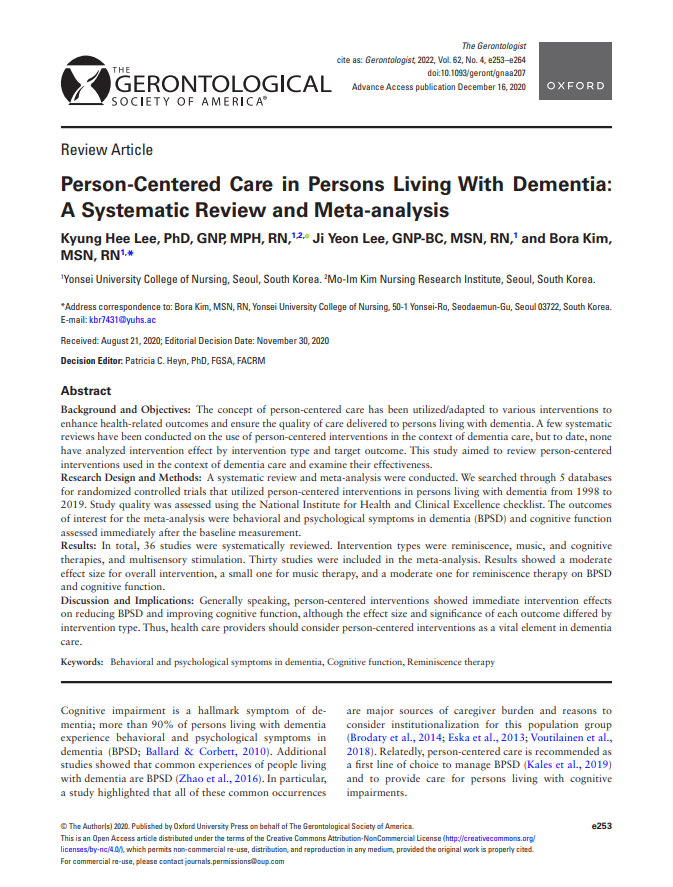Headline
Some person-centered care interventions are more effective than others at reducing behavioral and psychological symptoms and improving cognitive function in people with dementia.
Context
Person-centered care allows individuals' values and preferences to guide all aspects of their health care, and is a potential approach to managing the behavioral and psychological symptoms in dementia (BPSD). This systematic review and meta-analysis examine the effectiveness of different person-centered interventions on BPSD and cognitive function of people living with dementia.
Findings
The systematic review included 36 studies of person-centered care being applied to various intervention types – music, cognitive, and reminiscence therapies, and multisensory stimulation. The meta-analysis showed that person-centered interventions reduced BPSD and improved cognitive function, with results differing based on intervention type. Reminiscence therapy, for example, showed a moderate effect while music therapy, cognitive therapy, and multisensory stimulation had less of an impact on BPSD and cognitive function. Regardless of effect size, music and reminiscence therapies improved scores on a cognitive test and also decreased depression.
Takeaways
Health care providers supporting people with dementia should use person-centered care interventions, especially reminiscence therapies, when trying to reduce BPSD and improve cognitive function.


